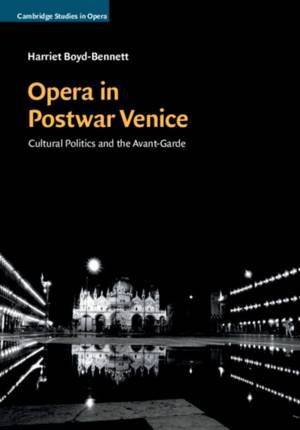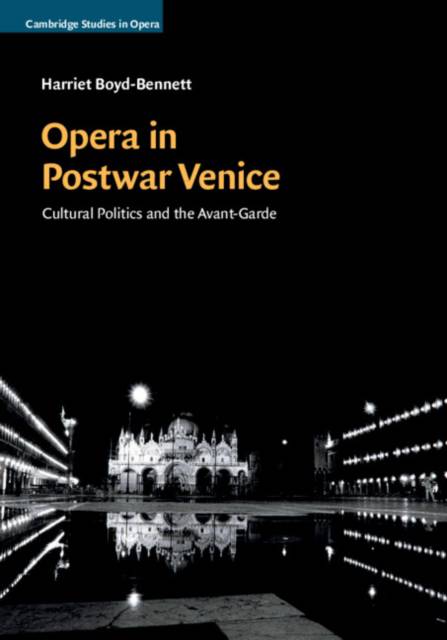
Bedankt voor het vertrouwen het afgelopen jaar! Om jou te bedanken bieden we GRATIS verzending (in België) aan op alles gedurende de hele maand januari.
- Afhalen na 1 uur in een winkel met voorraad
- In januari gratis thuislevering in België
- Ruim aanbod met 7 miljoen producten
Bedankt voor het vertrouwen het afgelopen jaar! Om jou te bedanken bieden we GRATIS verzending (in België) aan op alles gedurende de hele maand januari.
- Afhalen na 1 uur in een winkel met voorraad
- In januari gratis thuislevering in België
- Ruim aanbod met 7 miljoen producten
Zoeken
€ 183,45
+ 366 punten
Omschrijving
Beginning from the unlikely vantage point of Venice in the aftermath of fascism and World War II, this book explores operatic production in the city's nascent postwar culture as a lens onto the relationship between opera and politics in the twentieth century. Both opera and Venice in the middle of the century are often talked about in strikingly similar terms: as museums locked in the past and blind to the future. These clichés are here overturned: perceptions of crisis were in fact remarkably productive for opera, and despite being physically locked in the past, Venice was undergoing a flourishing of avant-garde activity. Focusing on a local musical culture, Harriet Boyd-Bennett recasts some of the major composers, works, stylistic categories and narratives of twentieth-century music. The study provides fresh understandings of works by composers as diverse as Stravinsky, Prokofiev, Verdi, Britten and Nono.
Specificaties
Betrokkenen
- Auteur(s):
- Uitgeverij:
Inhoud
- Aantal bladzijden:
- 240
- Taal:
- Engels
- Reeks:
Eigenschappen
- Productcode (EAN):
- 9781107169272
- Verschijningsdatum:
- 13/09/2018
- Uitvoering:
- Hardcover
- Formaat:
- Genaaid
- Afmetingen:
- 187 mm x 255 mm
- Gewicht:
- 671 g

Alleen bij Standaard Boekhandel
+ 366 punten op je klantenkaart van Standaard Boekhandel
Beoordelingen
We publiceren alleen reviews die voldoen aan de voorwaarden voor reviews. Bekijk onze voorwaarden voor reviews.









